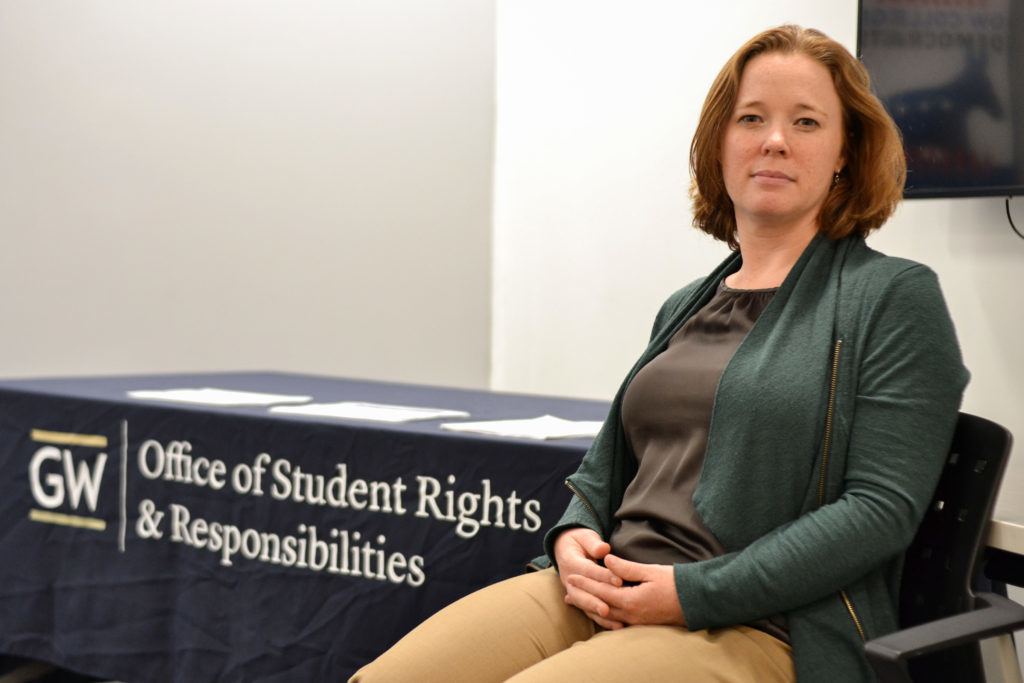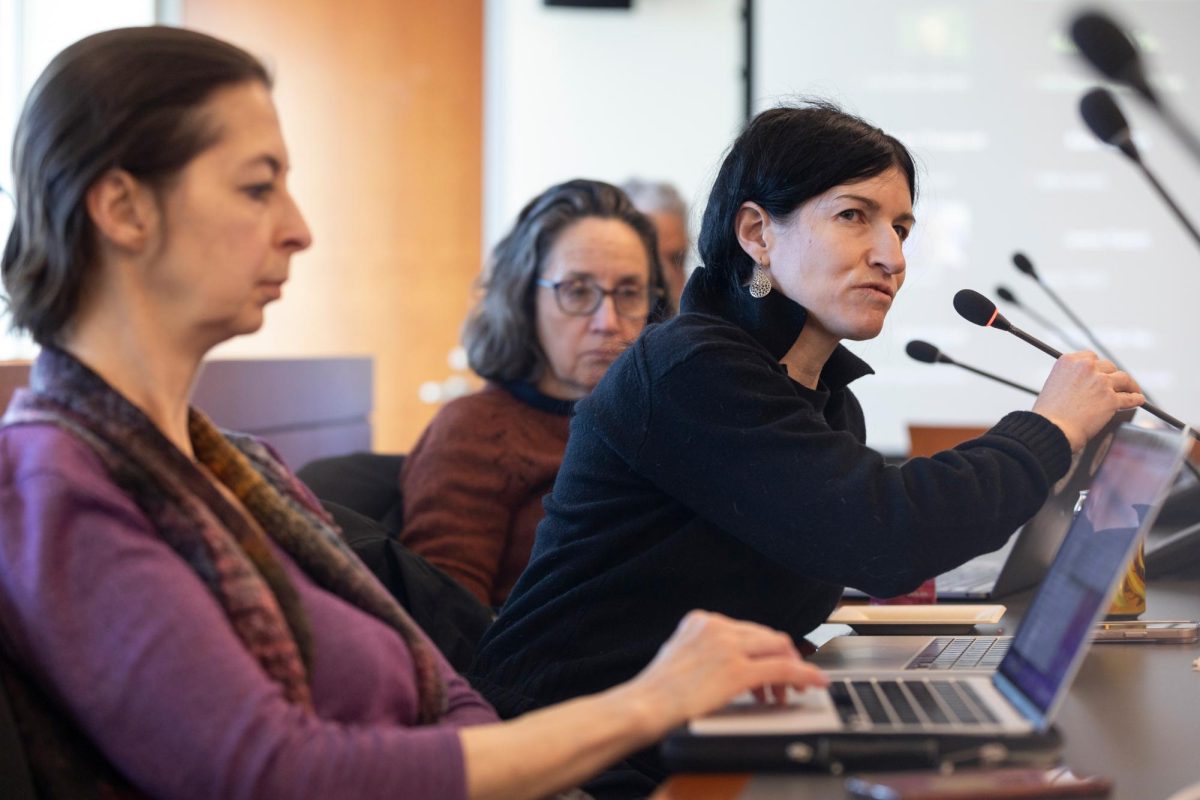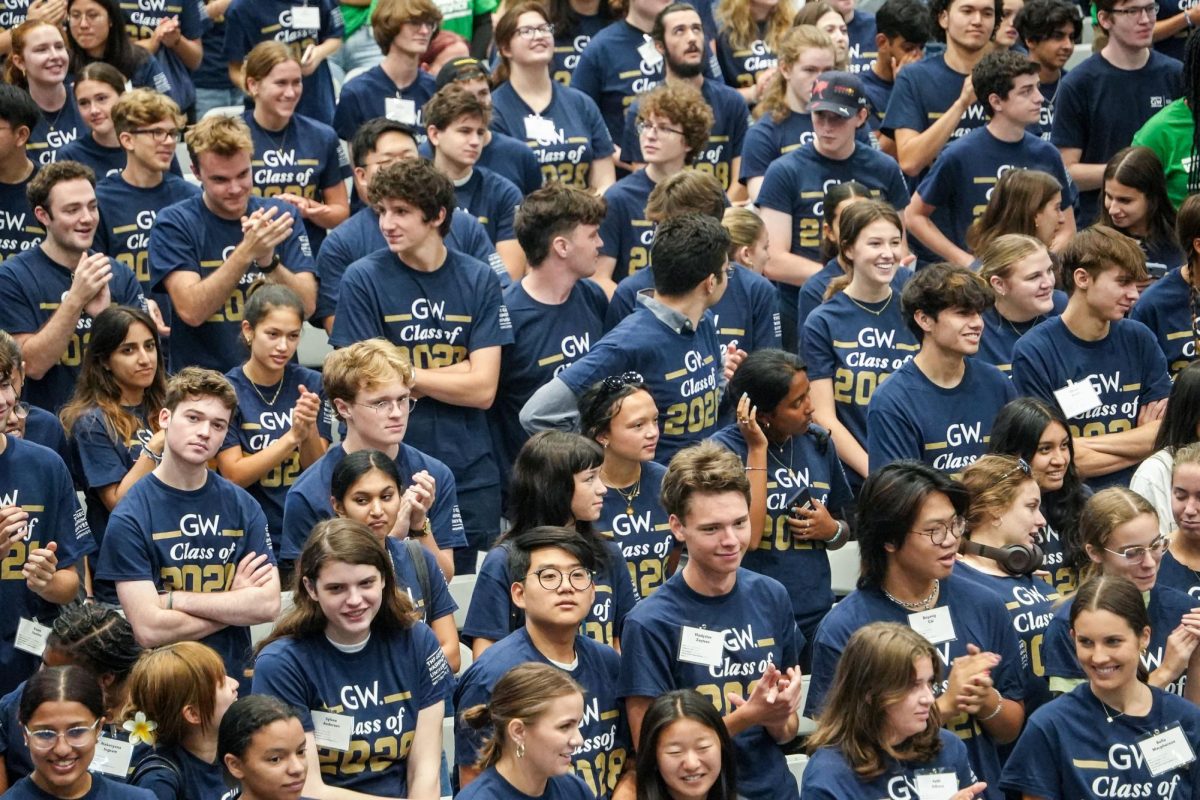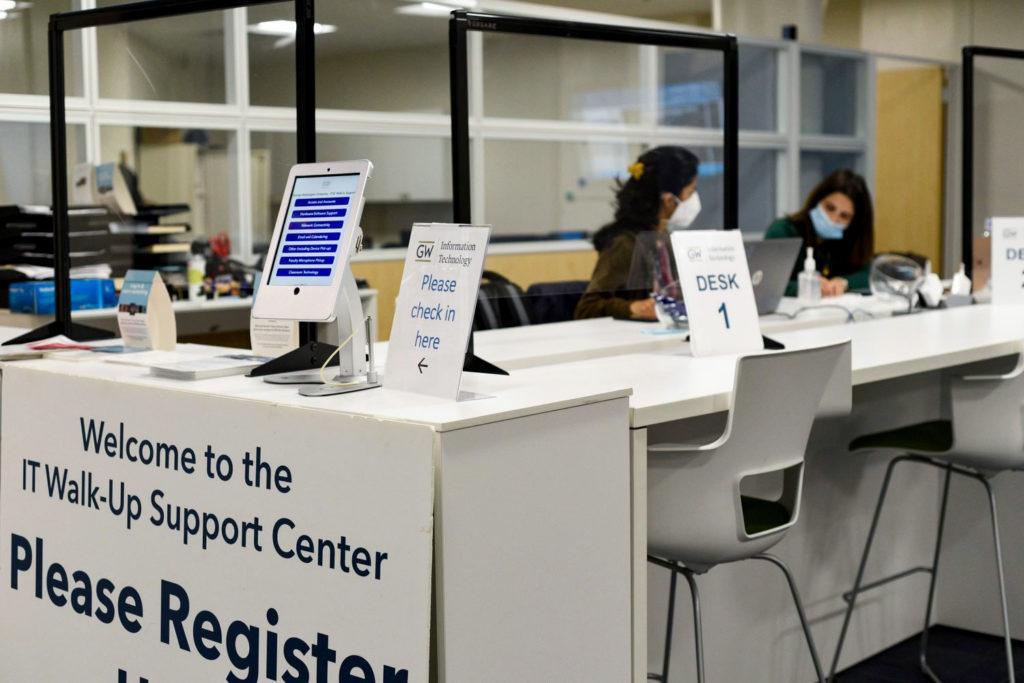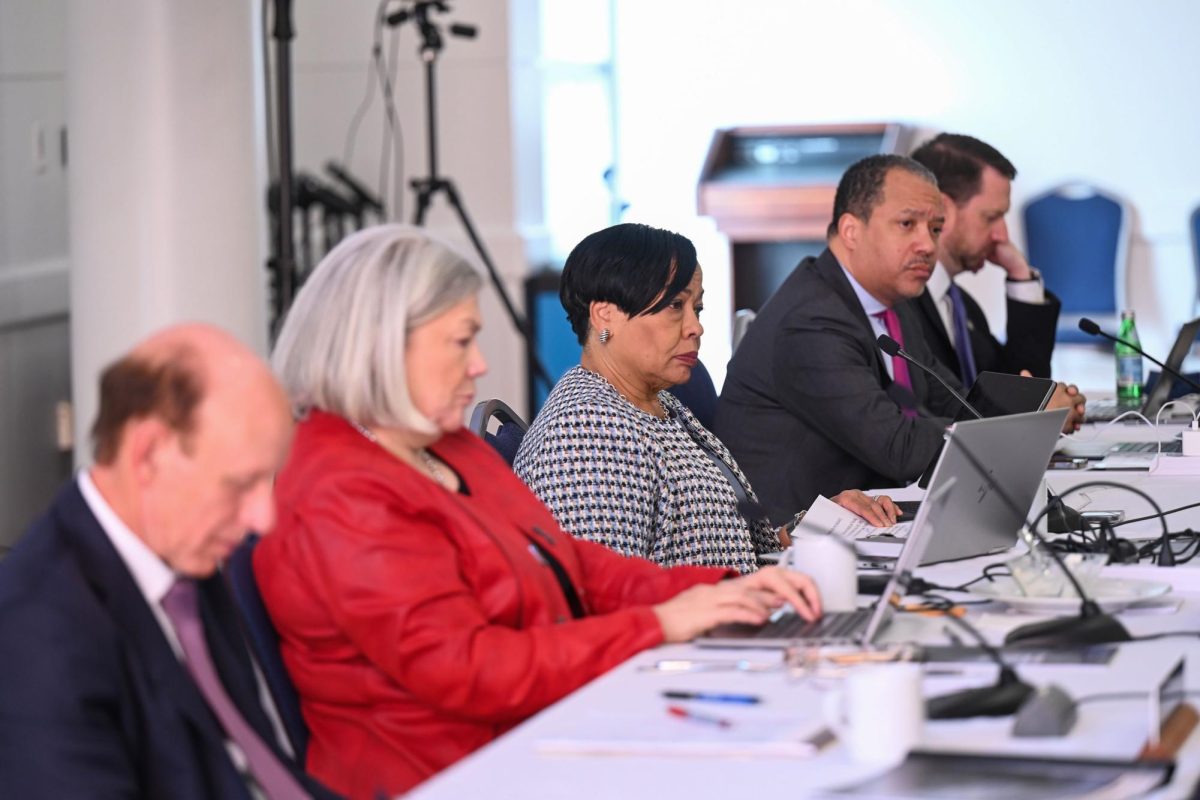The Faculty Senate unanimously passed a resolution Friday to update the Code of Academic Integrity, which would make the language more “restorative” while still holding students accountable for violations.
Christy Anthony, the director of the Office of Students Rights and Responsibilities, said the changes allow officials to respond to lower-level academic integrity cases in a more “educational” way while also increasing consequences for repeated academic integrity violations. The changes to the code, which the Student Association Senate approved last week, will be implemented in July if approved by the Board of Trustees and following a “comprehensive rollout plan” of the changes in May, the resolution states.
“It is a document that has the potential to really shape how we frame and acculturate our students to academic integrity at GW, and so I’m very excited about the potential that will come out of this,” Anthony said.
She said the updates to the code also include changes to the composition of academic integrity panels to increase “academic and demographic representation” of the GW community, to include representation of those with prior academic integrity violations and to allow a “reduced panel,” if the students and faculty involved agree to it.
“Currently the code lists a very detailed quota for each school to amass a pool of panelists,” Anthony said. “Instead this would be more generalized to say that representation is required from each school, that we seek diverse representation – including the academic and demographic identities present at the University – and then on any given panel, there should be a representative from the home school of the course.”
The changes will also allow deans to review findings from academic integrity hearings instead of the provost and the provost to review appeals instead of the University president, she said. Anthony said the changes would also reduce the consequences for less severe academic integrity violations and increase the consequences for more severe academic integrity violations.
“A significant percentage of the violations we see are students who ran out of time and took shortcuts or were confused about faculty expectations,” Anthony said. “Those students are still held accountable of course, but part of our goal is to prevent those by emphasizing to students how time management and asking for clarification can be beneficial to them.”
University President Thomas LeBlanc said during his remarks at the meeting that officials are looking to roll back several policies that were implemented roughly one year ago at the start of the COVID-19 pandemic, like the University-wide hiring freeze.
“As we do move forward with planning and as we do hopefully see a light at the end of the tunnel, we’re also taking some positive steps forward organizationally, including starting to move forward with faculty hires and other normal processes associated with the work of the institution – budget cycles and all the work that comes with that,” he said.
Provost Brian Blake said in his remarks that he has decided to pause the internal search for a vice provost of graduate studies following conversations at this month’s senate executive committee meeting, in which faculty expressed a desire to hold off on the search.
“With that being at least one part of the group that I thought came in consensus with that position, I heeded that and I said ‘Let’s just put that on hiatus until we have a more deeper conversation about the need for that position with FSEC and with the Faculty Senate,’ so that’s kind of on hold right now,” he said.
Senators also unanimously approved the nominations of Robert Zeman, a professor of radiology, to the fiscal planning and budgeting committee and Eric Grynaviski, an associate professor of political science and international affairs, to the physical facilities committee.
Arthur Wilson, the chair of the senate’s executive committee, said a team of faculty members is now working to review the qualitative results of the faculty survey on University leadership after officials released the quantitative results of the survey to all full-time faculty late last month.
“We will release a report on that – I suspect it will be coming up in late March – and we will at our executive session focus on discussing that in greater detail,” Wilson said.
Murli Gupta, the chair of the committee on appointments, salary and promotion policies and a professor of mathematics, said in his committee report that committee members have created a subcommittee to support diversity, equity and inclusion in GW’s hiring processes after senators passed a resolution last summer urging officials to affirm their commitment to fighting systemic racism.
“The subcommittee has shared a report with us, shared with the provost and had a mutually beneficial meeting with Provost Blake who asked that we help him and the administration with the DEI plans, and particularly with the planned diversity audit for which an outside forum is going to be hired,” Gupta said.
He said the subcommittee has requested “baseline data” from the past five years from officials about demographics of faculty hires, demographics of faculty departures, demographics of promotion from assistant to associate professor and associate to full professor and demographics of contractual versus tenure accruing or tenured faculty.
Sylvia Marotta-Walters, the chair of the physical facilities committee and a professor of counseling, said in her committee report that Thurston Hall’s renovations are “on time and on budget,” and officials expect it to be completed by the summer of 2022. She said the building will be LEED gold certified, meaning it will meet various qualifications set by the U.S. Green Building Council that support sustainability.
“We’re going to be doing really well in terms of the effects on climate,” she said.
Marotta-Walters also said officials have “learned a lot” from having a limited number of students on campus this academic year and from previous preparations for hybrid learning as officials plan for the upcoming fall semester. Officials initially planned to hold the fall 2020 semester in a hybrid format until they announced that the semester would be fully online.
“Having a few students on campus and an increasing number in the spring has allowed us to learn some lessons about the implementation of the safety procedures that we put in place,” she said.
Ciara Regan and Jared Gans contributed reporting.


